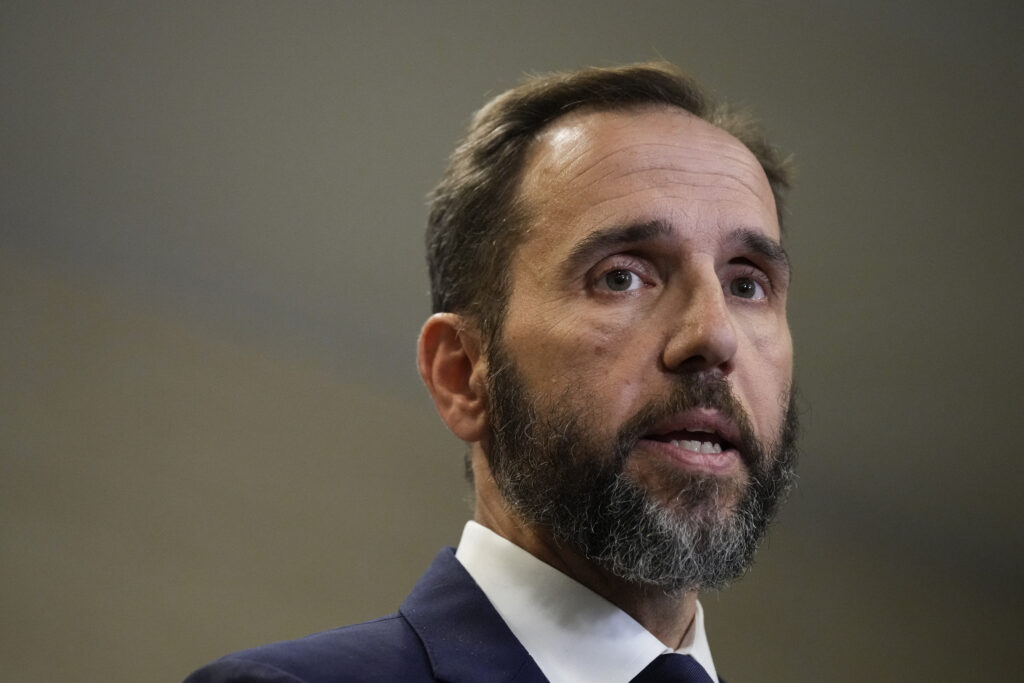The distinction between the two roles could make a difference in whether the 45th president can be convicted for January 6.
The Supreme Court’s ruling that a president’s official acts are presumptively immune makes prosecuting President Trump a challenge for Special Counsel Jack Smith. Candidates for office enjoy no such robust protection. That could be a loophole through which Mr. Smith charts a course to a conviction.
The distinction could make a difference because Mr. Smith’s indictment covers the purgatorial period after the vote of November 2020 and before President Biden’s inauguration in January 2021. To secure a conviction — or even to move to trial — the special counsel will be required to show that the evidence he has adduced is not immune. That is a high burden.
The Supreme Court, in Trump v. United States, held that in addition to the presumption of immunity for official acts, former presidents are entitled to “absolute” immunity for actions that are in their “conclusive and preclusive” areas of responsibility. Unofficial acts are entitled to no immunity because the “separation of powers does not bar a prosecution predicated” on them.
Judge Tanya Chutkan has set an August 16 hearing to determine how both sides wish to proceed with respect to the “mini trial” where the immunity issue will be addressed in advance of a jury being seated. She has also solicited briefings from both sides, suggesting that the contours of this unprecedented process have not yet come into focus. Never before has a district court judge been tasked with weighing presidential immunity in a criminal case.
The high court mandates that “in dividing official from unofficial conduct, courts may not inquire into the President’s motives” because that kind of “inquiry would risk exposing even the most obvious instances of official conduct to judicial examination.” That would frustrate what Alexander Hamilton termed, in 70 Federalist, a “vigorous” and “energetic” presidency. The chief justice indicated that immunity attaches to Trump’s conversations with Vice President Pence and Department of Justice officials.

With motives off-limits, Mr. Smith could try to build this second iteration of his case in a narrower fashion. Legal scholar Alan Dershowitz tells the Sun that the special counsel “could have narrowed the indictment at the beginning” to have avoided this constitutional snarl. Mr. Dershowitz adds that he “never understood why he didn’t go for that,” as it would have “mooted” the Supreme Court’s landmark ruling.
Mr. Dershowitz’s advice to Mr. Smith is to edit his indictment — a prerogative of prosecutors — to “just deal with things totally partisan in nature.” One way to do that would be to focus on Trump’s efforts to retain office rather than exercise its privileges and responsibilities. In oral arguments, Trump’s attorney, John Sauer, conceded that the “alternate elector” scheme and efforts to pressure state officials were “private” and therefore not immune.
While Chief Justice Roberts’s opinion explains that “a long-recognized aspect of Presidential power is using the office’s ‘bully pulpit’ to persuade Americans,” it also reckons that there “could be contexts in which the President, notwithstanding the prominence of his position, speaks in an unofficial capacity — perhaps as a candidate for office or party leader.”
While Mr. Smith could be challenged to paint Trump as a candidate after the 45th president lost the 2020 election, such a characterization has succeeded in court before, albeit in a civil context. In a suit brought by Democratic lawmakers seeking to hold Trump liable for January 6, Judge Amit Mehta ventured that a “first-term President is, in a sense, always a candidate for office.”
Judge Mehta found that plans for the rally on January 6 at the Ellipse “took place largely through President Trump’s campaign organization.” The jurist added that “the words spoken by the President — without delving into the motivation behind them — reflect an electoral purpose, not speech in furtherance of any official duty.” The Department of Justice weighed in — remarkably — against Trump’s contentions of executive immunity.
The United States appeals court for the District of Columbia Circuit upheld Judge Mehta, finding that “when a first-term President opts to seek a second term, his campaign to win re-election is not an official presidential act. The Office of the Presidency as an institution is agnostic about who will occupy it next. And campaigning to gain that office is not an official act.”
The DOJ, which is tasked with representing the government’s position, hedged in that case, saying, “any decision about how to define the limits of absolute immunity in campaign contexts should await a case in which the relevant issues have been fully briefed.” That occasion could well be now, in the case before Judge Chutkan.
https://www.nysun.com/article/jack-smith-eyes-new-strategy-to-convict-trump-try-the-candidate-not-the-president


